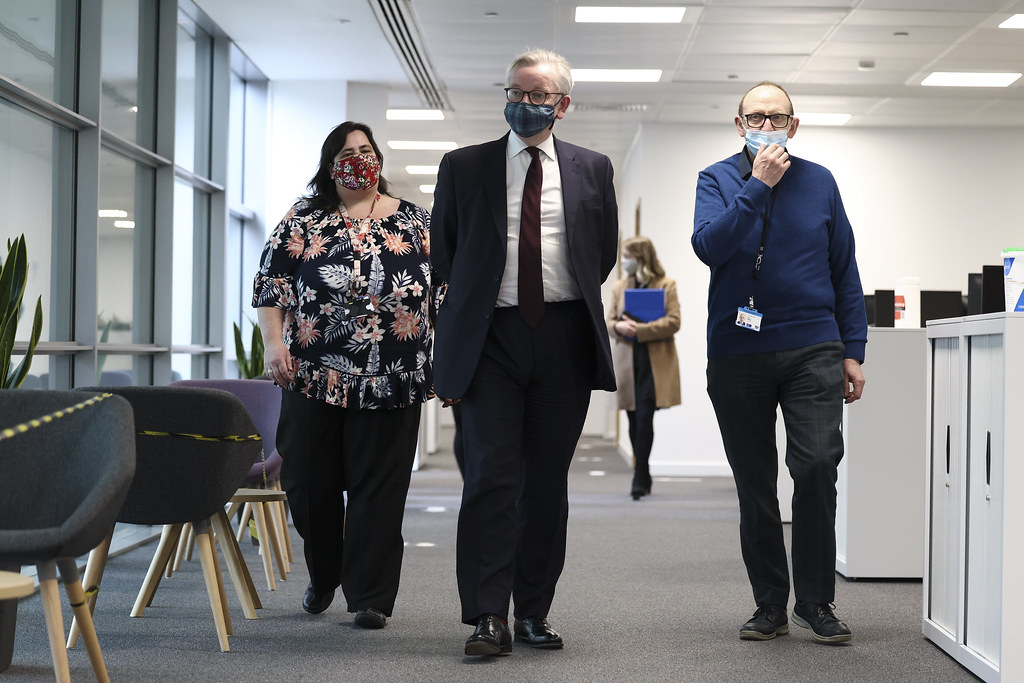Tory insiders have long suggested that autumn is the most likely option in the wake of falling inflation and the possibility of an interest rate cut…reports Asian Lite News
The next general election is likely to take place on Nov 14 or 21, Michael Gove has predicted. Gove said he had “no inside knowledge” about the date of the poll, but his comments will add to a consensus that it will be held in the autumn.
The Levelling Up Secretary made the remarks in an interview on Political Currency, a podcast hosted by George Osborne, the former chancellor, and Ed Balls, who was his Labour counterpart.
Asked when he believed the election would take place, Gove said: “I think November the 14th or the 21st… I have no inside knowledge at all.”
Challenged by Ed Balls on the fact that he had been to see the Prime Minister that day, Gove replied: “We did not discuss the election – we were discussing policy.
“If he had told me, I couldn’t tell you. Therefore, the fact that I’ve told you what I think is proof that I didn’t know.” Osborne, a close ally of Rishi Sunak who has previously provided advice to the Prime Minister, has previously predicted that the next election will be held on Nov 14.
He told podcast listeners to “save the date” and claimed to have been informed by a “little birdie” in Downing Street that “various work programmes” were based on the assumption of a mid-November poll.
Sir John Curtice, Britain’s foremost polling guru and a professor of politics at Strathclyde University, also suggested Nov 14, claiming Oct 2 – set to be the final day of the Conservative Party conference – could see Sunak fire the “starting gun” on the contest.
Rumours in Westminster that the general election could be held on May 2, the same day as the local elections, grew to the point that Sunak had to rule out the date in the clearest sign yet that a ballot will not be held this spring.
A general election must be held by January, and the decision about when to go to the public is in the gift of the Prime Minister. He has previously said an election in the “second half” of this year is his “working assumption”, although that has not stopped Labour figures talking up the chances of a spring election in an attempt to describe Mr Sunak as a “bottler” and a “chicken”.
Tory insiders have long suggested that autumn is the most likely option in the wake of falling inflation and the possibility of an interest rate cut, as well as giving voters time to feel the benefit of the tax cuts unveiled in November’s Autumn Statement and last month’s Budget.
Speaking after Sunak confirmed the election would not take place on May 2, Jeremy Hunt, the Chancellor, hinted that it could instead be held in October.
Meanwhile, a new poll has suggested that Conservatives are on course for their worst election result, winning fewer than 100 seats.
The seat-by-seat analysis gives the Tories 98 constituencies compared with Labour’s 468, giving Starmer a 286-seat majority, the Sunday Times has reported.
The 15,000-person poll, conducted by agency Survation on behalf of Best for Britain, gives Labour a 45% vote share with a 19-point lead over the Conservatives.
Sunak’s party is on track to win 98 seats with none in Scotland or Wales, according to the research. It also suggests the prime minister is at risk of losing his own constituency, the new Richmond & Northallerton seat in North Yorkshire, to Labour with his lead less than 2.5 percentage points.
The analysis forecasts that Reform UK will come second in seven seats and achieve an overall vote share of 8.5%, just behind the Liberal Democrats on 10.4%
The poll also suggests the Scottish National Party would pick up 41 seats, the Liberal Democrats 22 and Plaid Cymru two.
Naomi Smith, Best for Britain’s chief executive, said: “With the polling showing swathes of voters turning their backs on the Tories, it’s clear that this will be a change election.”
In 2019 the Conservatives had 365 seats, Labour 203, the SNP 48, the Lib Dems 11 and Plaid four.
The findings come after Labour sources said the party’s overall financial position remained strong despite membership subscriptions falling off because donations were healthy and unions were expected to give very substantial backing to the election effort.
Labour has suffered more than a 23,000 fall in membership over the past two months after controversies over its policy on Gaza and its U-turn on green investment, according to figures released to its National Executive Committee (NEC).
The party’s general secretary, David Evans, revealed that membership, which had stood at 390,000 in January, had plummeted to 366,604 at the latest count, with more than 11,700 of these being in arrears. Labour membership reached a peak at the end of 2019 when it hit more than 532,000.
ALSO READ-Tory rebels warn Sunak on poll date

